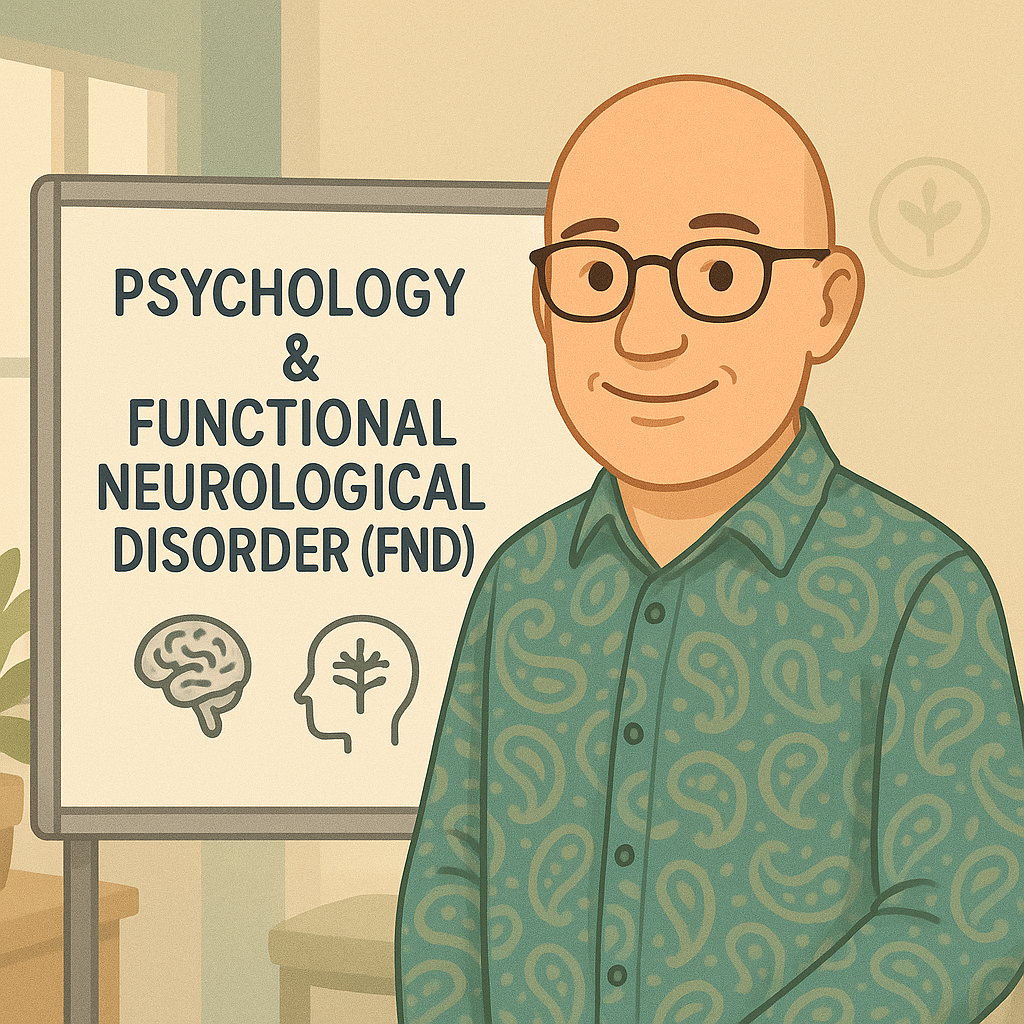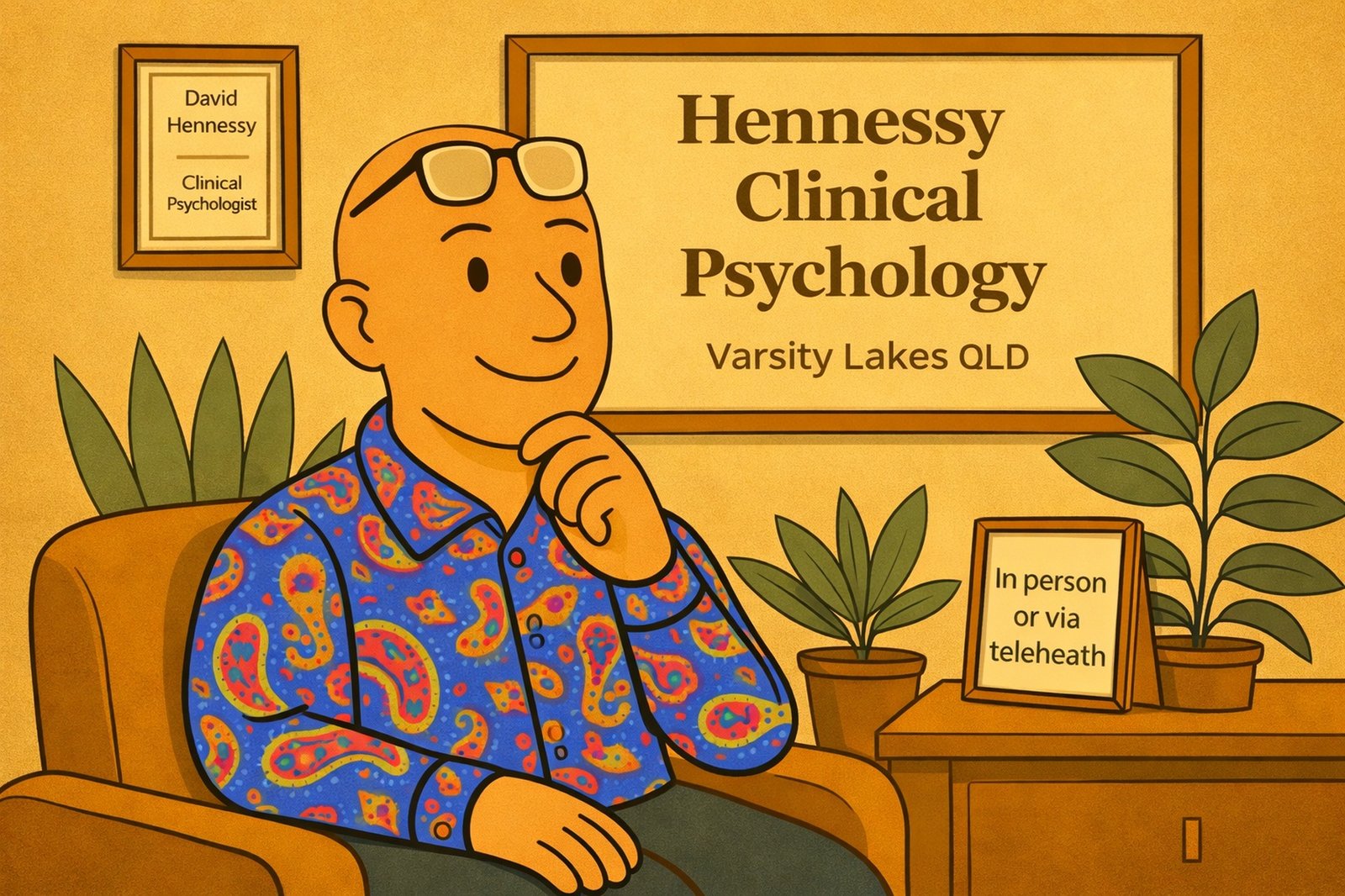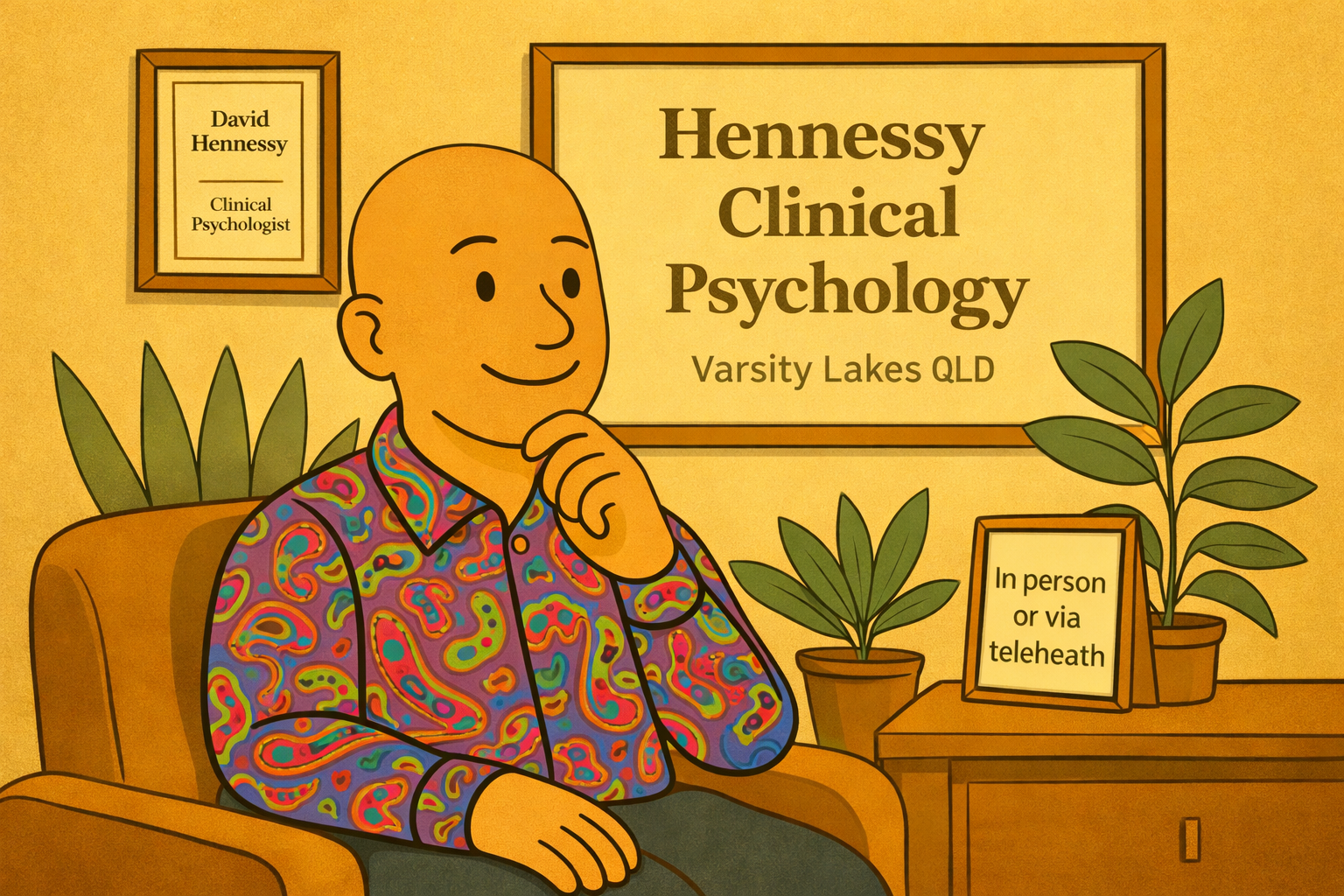Psychology and Functional Neurological Disorder (FND)
By David Hennessy, Clinical Psychologist

Introduction
Functional Neurological Disorder (FND) is increasingly recognised as a common and treatable brain and body condition that sits at the intersection of neurology, psychology, and rehabilitation. People living with FND may experience neurological symptoms such as tremors, non epileptic seizures, limb weakness, altered gait, or sensory changes, despite standard neurological tests such as MRI and EEG showing no structural damage. The absence of visible structural change does not reduce the reality or validity of the symptoms. FND symptoms reflect disruptions in the way the brain communicates with and interprets the body, and they deserve compassionate and evidence-based care.
What Is FND
In FND, the brain’s signalling and predictive systems appear to misfire, meaning the intention to move, speak, or feel does not match what the body does. Symptoms may include:
- Functional non epileptic seizures
- Functional limb weakness or paralysis
- Functional tremor or movement disturbances
- Functional gait problems
- Sensory symptoms such as numbness or altered sensation
- Speech or visual disturbances in some cases
Diagnosis relies on positive signs such as inconsistency, variability, or distractibility during neurological assessment, rather than on exclusion alone[1].
Why a Psychological and Multidisciplinary Understanding Matters
FND is best understood as a disorder of function rather than structure. Modern research highlights that FND involves altered patterns of brain-body communication, sense of agency, and predictive processing. Psychological, emotional, and social factors may interact with neurological vulnerability and can influence symptom onset or persistence[2]. However, not all individuals with FND have trauma histories. The current consensus emphasises a biopsychosocial and neurocognitive model that validates symptoms as real and treatable.
Best practice treatment uses multidisciplinary approaches combining psychotherapy, physiotherapy, and, when needed, occupational therapy, speech therapy, and neurological review[3]. Early diagnosis and early intervention are linked with better outcomes[4].
Evidence-Based Treatment Approaches
Psychological Therapy
The most researched psychological therapies for FND are Cognitive Behavioural Therapy (CBT) and psychodynamic-informed therapy. A 2021 systematic review found medium-sized benefits across physical symptoms, mental health, general functioning, and health care use[2]. Evidence-based psychological treatment may include:
- Psychoeducation that validates symptoms and reduces fear
- Identifying triggers and maintaining factors
- Emotion regulation skills
- Interoceptive and somatic awareness
- Stress reduction
- Working with unhelpful expectations or predictions
- Rebuilding a sense of agency
Physiotherapy and Motor Retraining
Specialised physiotherapy is central for people with motor symptoms such as tremor, gait disturbance, or functional weakness. Physiotherapy uses graded motor retraining to restore automatic movement patterns and reduce symptom-driven behaviours[4].
A 2024 randomised controlled trial showed that combined physiotherapy and CBT significantly improved physical quality of life, mobility, and symptom severity compared with non-directive therapy[4].
Multidisciplinary Rehabilitation
Best practice international guidelines emphasise the importance of coordinated multidisciplinary rehabilitation. This may include neurologists, physiotherapists, psychologists, occupational therapists, and speech pathologists, depending on the symptoms involved[3].
Psychoeducation as Treatment
A clear and respectful explanation of FND can itself be therapeutic. Validation, clear language, and shared understanding help reduce shame, reduce fear, and improve engagement with rehabilitation[1].
The Role of the Psychologist
In clinical practice, I support people with FND by:
- Providing a clear and compassionate explanation of the condition
- Using evidence-based therapy to support emotional regulation, reduce distress, and retrain brain-body patterns
- Collaborating with neurologists, physiotherapists, and other allied health professionals
- Supporting a sense of self-agency and self-compassion
- Helping clients navigate symptom fluctuation with stability and hope
Hopeful Realism
FND can be challenging, but contemporary research offers real grounds for hope. Many people experience a significant reduction in symptoms, and some recover fully. Improvement is more likely when individuals feel understood, supported, and connected with a multidisciplinary team. Progress is often gradual, and supportive therapeutic relationships play an important role in helping people remain grounded and connected to their goals.
Resources and Further Support
- FND Australia Support Services
- Neurosymptoms.org
- FND Hope
- Your GP or neurologist for referral to FND experienced clinicians
Enquiries / Appointments
If you would like support for FND or other complex presentations, please feel welcome to contact Hennessy Clinical Psychology.
References
- Bennett, K., Diamond, C., Hoeritzauer, I., Gardiner, P., McWhirter, L., Carson, A., & Stone, J. (2021). A practical review of functional neurological disorder (FND) for the general physician. Clinical Medicine, 21(1), 28–36. https://doi.org/10.7861/clinmed.2020-0987
- Myers, L., Sarudiansky, M., Korman, G., Baslet, G., et al. (2021). Using evidence based psychotherapy to tailor treatment for patients with functional neurological disorders. Epilepsy & Behavior Reports, 16, Article 100478. https://doi.org/10.1016/j.ebr.2021.100478
- Gilmour, G. S., Baslet, G. (2020). Management of functional neurological disorder: diagnostic discussion and treatment strategies. Seizure, 78, 54–61. https://doi.org/10.1016/j.seizure.2020.03.015
- Macías-García, D., Méndez-Del Barrio, M., Canal-Rivero, M., et al. (2024). Combined physiotherapy and cognitive behavioural therapy for functional movement disorders: A randomised clinical trial. JAMA Neurology. Advance online publication. https://doi.org/10.1001/jamaneurol.2024.2393
- Mavroudis, I., Papadopoulou, A., Tsaligrammatiki, M., et al. (2024). Understanding functional neurological disorder: recent advances in diagnosis and tailored management. International Journal of Molecular Sciences, 25(8), 4470. https://doi.org/10.3390/ijms25084470



